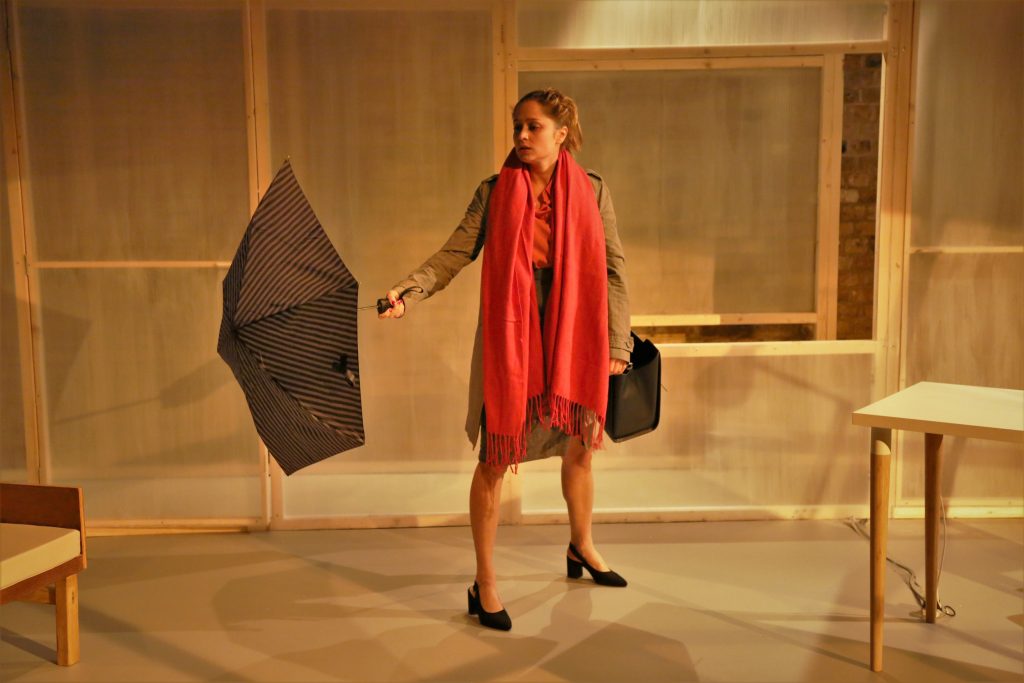ALICE DEVOY reviews Moormaid at the Arcola.
We are welcomed into a refined Berlin apartment that smacks of good-taste. The rain pours outside. We meet Melissa (Sarah Alles), a young and elegant artist who matches her space perfectly. She is disgruntled with her umbrella and, so it would seem, her life. She doesn’t waste any time unravelling her red cashmere scarf, climbing onto her desk and pulling the scarf around her neck. But, alas, the suicide attempt is interrupted twice in as many minutes. This frustrated urgency is what goes on to chase the rest of Marion Bott’s play Moormaid.
The first interruption is Melissa’s husband on the phone. The second is an ex-student (and old flame) at the door. Mehdi (Moe Bar-el) arrives from north Berlin on the whim of a prophetic dream that something bad was happening to Melissa. Throughout the night, he stays with her, guarding her and painting with her. Secrets start to unravel, and we are introduced to a boy with hallucinations, a past and a difficult relationship with religion.

Somewhat fitting of the artistic temperament of the characters, Moormaid is a display of aesthetic beauty. There are moments when it feels more like a dance or performance art than a play. When Melissa and Mehdi paint together, for instance, or have sex, they become one moving and dancing entity, moulding together with the music. It is an outstanding display of intimacy, excitement and synchronisation.
Behind this foreground of elegance however lurk darker tones of religious radicalism. It hides behind the thin white screens at the back of the stage in the figure of Khan (Ali Azhar), Mehdi’s old friend. The two reminisce about their families, growing up and the shared experience of extremism. Throughout the play, gradually, the morbid and shameful comes to light. Radicalism is an issue that has become both prolific and insidious, every-present and discussed, yet unseen.

Moormaid explores this ambiguity well, creating a likeable character who can seem as confused as us. However, although the concepts behind Moormaid are strong, there is simply too much happening, and the confusion overtakes the intriguing ambiguity. The play constantly builds up and then flags, leaving the audience with a slight twinge of dissatisfaction.
Perhaps this is part of its charm though – this failure to be clear-cut. The glue that holds this play together is the relationships; a spider’s web of intimacies that are tangled, muddled but hyper-believable. The complex emotional pulls in the Berlin apartment fill Moormaid with intrigue and drama that certainly leaves you asking questions. But perhaps just a few more should have found answers.
Moormaid runs until 19th May at the Arcola. Find more information here.
Featured image courtesy of Anika Wagner.





